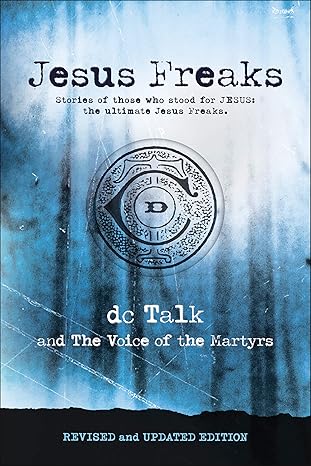
The Pilgrim's Progress Modern Edition Book Review: Why This Classic Still Matters Today
Friday, November 27, 2020Here's the truth: I put off reading The Pilgrim's Progress for years. The idea of tackling a book written in seventeenth-century English felt about as appealing as a root canal. But when I finally picked up a modern edition, something unexpected happened—I couldn't put it down.
For nearly 350 years, John Bunyan's The Pilgrim's Progress has walked alongside believers through their toughest valleys and highest mountain peaks. And now? This timeless allegory has been translated into language that actually makes sense to those of us who don't speak like Shakespeare. Whether you're brand new to Christian's journey or you remember bits and pieces from Sunday school, this modern edition brings Bunyan's wisdom into our world without watering down a single truth. Let me tell you why this book might be exactly what you need right now.
About the Book and Its Author
Picture this: John Bunyan, a simple tinker who fixed pots and pans for a living, sitting in a cold Bedford jail cell because he refused to stop preaching the gospel. Instead of growing bitter, he picked up his pen and wrote one of the most influential Christian books in history—second only to the Bible itself. Talk about turning your mess into your message.
The story reads like a vivid dream. A man named Christian suddenly realizes he's living in the City of Destruction (relatable, right?), and he makes a desperate run for the Celestial City. But this isn't a leisurely Sunday stroll. Along the way, he meets people who either help or hinder his journey. There's Evangelist, who points him in the right direction. Faithful, who becomes a true brother in the faith. And then there's Apollyon—a terrifying enemy who literally tries to destroy him. Every person, every place, every obstacle represents something we face in our own walk with Christ.
What I love about the modern edition is that it keeps all these powerful themes intact—the idea that following Jesus is a journey, that spiritual warfare is real, that we need to persevere, and that God's grace is always enough. But now you can actually understand what's happening without needing a dictionary from 1678 sitting on your lap. You still feel the weight of Christian's burden at the cross. You still celebrate when he finally reaches the Celestial City. You just don't have to decode "thee" and "thou" to get there.
The Good: Why This Modern Edition Shines
It's Finally Readable (and That's Not Cheating)
Look, I've heard some folks say that reading anything other than the original King James-style version is somehow less spiritual. But here's my take: if the language barrier keeps you from absorbing the truth, what's the point? The modern edition removes the stumbling blocks without removing the substance. It's like the difference between listening to a sermon in a language you don't speak versus hearing it in your native tongue—same message, but one actually lands in your heart.
The translators did something really smart here. They preserved Bunyan's theological depth and allegorical genius while making it sound like someone from this century wrote it. No more stopping every three sentences to figure out what a word means. The story just flows. And when a story flows, you stop analyzing it and start experiencing it. That's when transformation happens.
It Hits Way Too Close to Home
You know what's wild? Bunyan wrote this book over 300 years ago, but it feels like he's been reading my journal. The Slough of Despond—that muddy pit where Christian almost gives up right at the beginning? Yeah, I've been there. That moment when you first come to faith and then immediately get hit with doubt, discouragement, and the feeling that you're sinking fast. Check.
And Vanity Fair? Don't even get me started. It's basically the mall, social media, and Netflix all rolled into one distraction. A place where everything glitters and everyone's trying to sell you something that promises happiness but delivers emptiness. Bunyan nailed it centuries before we had algorithms designed to keep us scrolling.
Then there's Doubting Castle, where Giant Despair locks Christian and his friend Hopeful in a dark dungeon. If you've ever wrestled with depression or felt trapped by your own spiraling thoughts, you'll recognize that prison immediately. The modern edition doesn't try to update these scenes—they don't need updating. It just makes them accessible so you can see yourself in them.
Scenes That Stay With You
Some books you finish and forget by next Tuesday. This one? It stays with you. I still think about the moment when Christian's burden falls off his back at the cross. Three times it says it rolled away, tumbled down the hill, and fell into an empty tomb. Three times—like Bunyan wanted to make absolutely sure we got it. Your sin, your shame, your past—gone. Really gone.
Or the battle with Apollyon in the Valley of Humiliation. It's not some sanitized, abstract conflict. It's brutal and terrifying, and Christian nearly loses. But when he finally defeats the enemy, you feel like you've won too. Because maybe you're in your own battle right now, and you needed to see that victory is possible.
And that final scene—crossing the River of Death to reach the Celestial City? I won't spoil it, but let's just say you might want tissues nearby. The modern language doesn't diminish these powerful moments. If anything, it intensifies them because you're not distracted trying to translate in your head.
Perfect for Going Deeper Together
I've used this book in small groups, and it's gold. Each chapter becomes a mirror. Someone will say, "I'm definitely in the Valley of Humiliation right now," and suddenly everyone's nodding and sharing their own stories. Or you'll ask, "Who in your life has been an Evangelist to you?" and the conversation goes for an hour.
It works beautifully for individual devotions too. You can read a chapter, sit with it, and ask yourself hard questions. Where am I on this journey? What burden am I still carrying that Jesus wants to take? What's my Vanity Fair—the distraction that keeps pulling me away from the narrow path?
The Not-So-Good: A Few Things to Keep in Mind
Okay, let's be honest about the limitations. If you're a literature buff who loves the poetic rhythm of old English, you might miss some of that beauty. Bunyan's original prose has a certain music to it—phrases that stick in your memory like hymn lyrics. The modern edition is clearer, but sometimes clarity comes at the cost of poetry. It's a trade-off, and most readers will gladly make it, but purists might grieve the loss.
Also, even with modern language, this is still an allegory. Everything is symbolic. Some readers—especially those who prefer straightforward, practical teaching—might find themselves thinking, "Just tell me what to do!" The whole symbolic storytelling approach isn't everyone's cup of tea, and that's okay.
One more thing: Bunyan was writing from a seventeenth-century Reformed Protestant perspective. The core gospel? Universal and unchanging. But some of the theological nuances reflect his time and tradition. The modern edition updates the words, not the worldview. If you're from a different church background, you might occasionally raise an eyebrow. That doesn't make the book less valuable—just be aware that you're reading historical theology, not a contemporary systematic theology textbook.
Who Is This Book For?
This book is perfect if you're:
- A Christian who's always heard about this classic but thought it was too hard to read
- Someone walking through a difficult season and needing encouragement that you're not the first person to struggle
- Part of a small group or Bible study looking for rich discussion material that goes beyond surface-level questions
- A fan of books that have stood the test of time and still speak truth generations later
- Anyone who needs a reminder that the Christian life is a journey, not a destination, and that we're all fellow pilgrims on the same road
Final Verdict: Read This Book
If you've been on the fence about The Pilgrim's Progress, let me give it to you straight: read the modern edition. It's one of those rare books that's both deeply challenging and incredibly encouraging. It doesn't sugarcoat the difficulty of following Jesus, but it also doesn't leave you without hope.
You'll see yourself in Christian's struggles. You'll recognize your own Sloughs of Despond and Vanity Fairs. You'll remember battles you've fought and maybe realize you're in one right now. But you'll also be reminded that you're not walking alone, that grace is sufficient, and that there really is a Celestial City waiting for those who press on.
In a world that tries to convince us that the Christian life should be easy, comfortable, and immediately rewarding, The Pilgrim's Progress tells the truth: it's hard, it's beautiful, it costs something, and it's worth everything. The modern edition just makes that truth accessible to a new generation of pilgrims—and honestly, we need it now more than ever.
So grab a copy, pour yourself some coffee, and join Christian on the journey. I have a feeling you'll find yourself somewhere in these pages. And maybe, just maybe, you'll find exactly what you need to take the next step on your own pilgrimage.
More Books
Comments



